GET IN TOUCH
- Please wait...
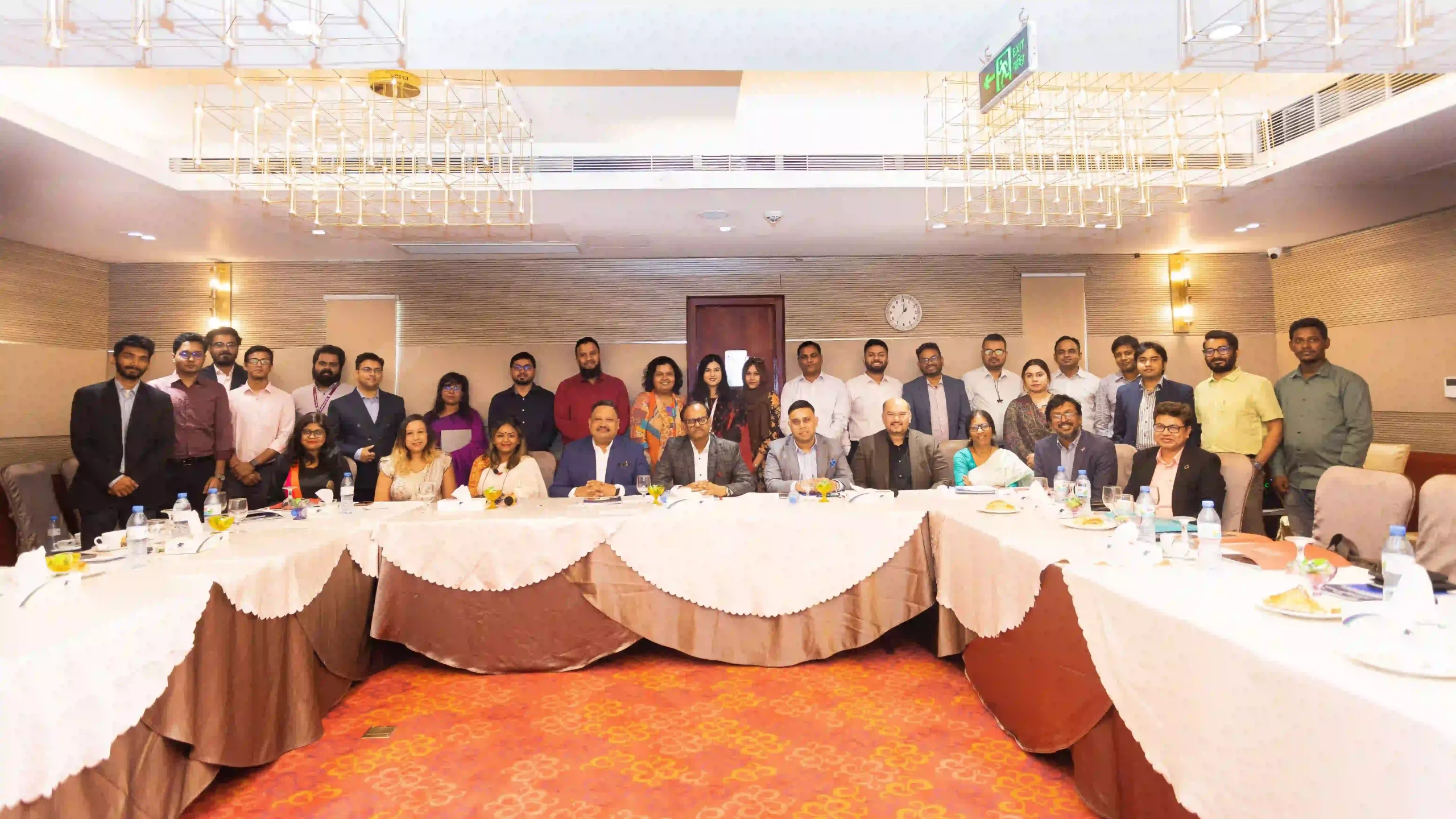
The textile and Ready-made Garment (RMG) industry, which is a vital driver of Bangladesh’s economy, played a significant role in terms of employment and foreign exchange. In the fiscal year 2022-23, the RMG sector alone contributed a substantial USD 46.99 billion, representing 84.58% of foreign exchange earnings and 10.35% of the Gross Domestic Product, [1]
Side by side, the apparel industry engages over 4 million workers directly and millions more in supporting industries, primarily comprising women, any changes affecting the apparel industry have the potential to significantly influence the lives and economic opportunities of women workers throughout the country. [2]
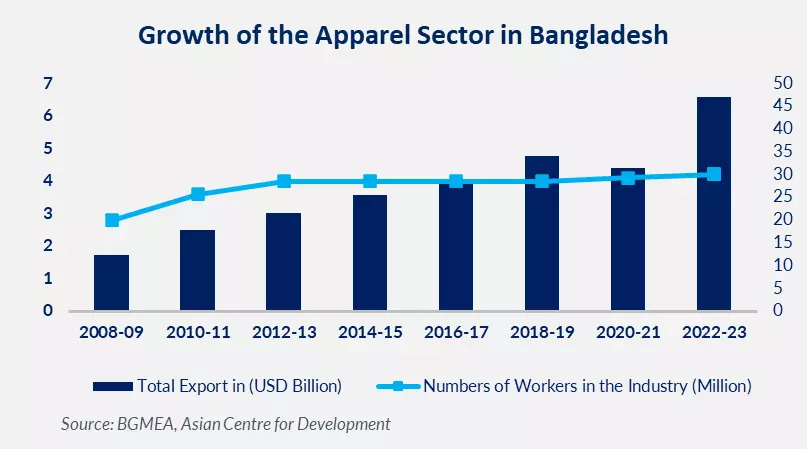
To that end, the apparel sector in Bangladesh has the potential to sustain its position as one of the leading manufacturers of Ready-Made Garments (RMG) globally, maintaining its remarkable trajectory of growth and enhancement. Nevertheless, the country’s apparel industry is encountering challenges and must undertake decisive measures in various areas to ensure its continued prosperity.
The growing automation within the industry is anticipated to transform labor dynamics and the necessary skills. Additionally, the existing trade tensions between the United States and China present prospects for Bangladesh to enhance its market footprint.
Side by side, it is crucial to adopt sustainable sourcing practices to mitigate supply chain carbon emissions and maintain competitiveness internationally. Furthermore, the potential escalation of trade barriers could heighten competition from other nations, emphasizing the need for enhancements in logistics to minimize shipping time and expenses. Advancements in feeder vessels, deep seaports, and expanded port capacity represent opportunities for potential cost and time efficiencies.
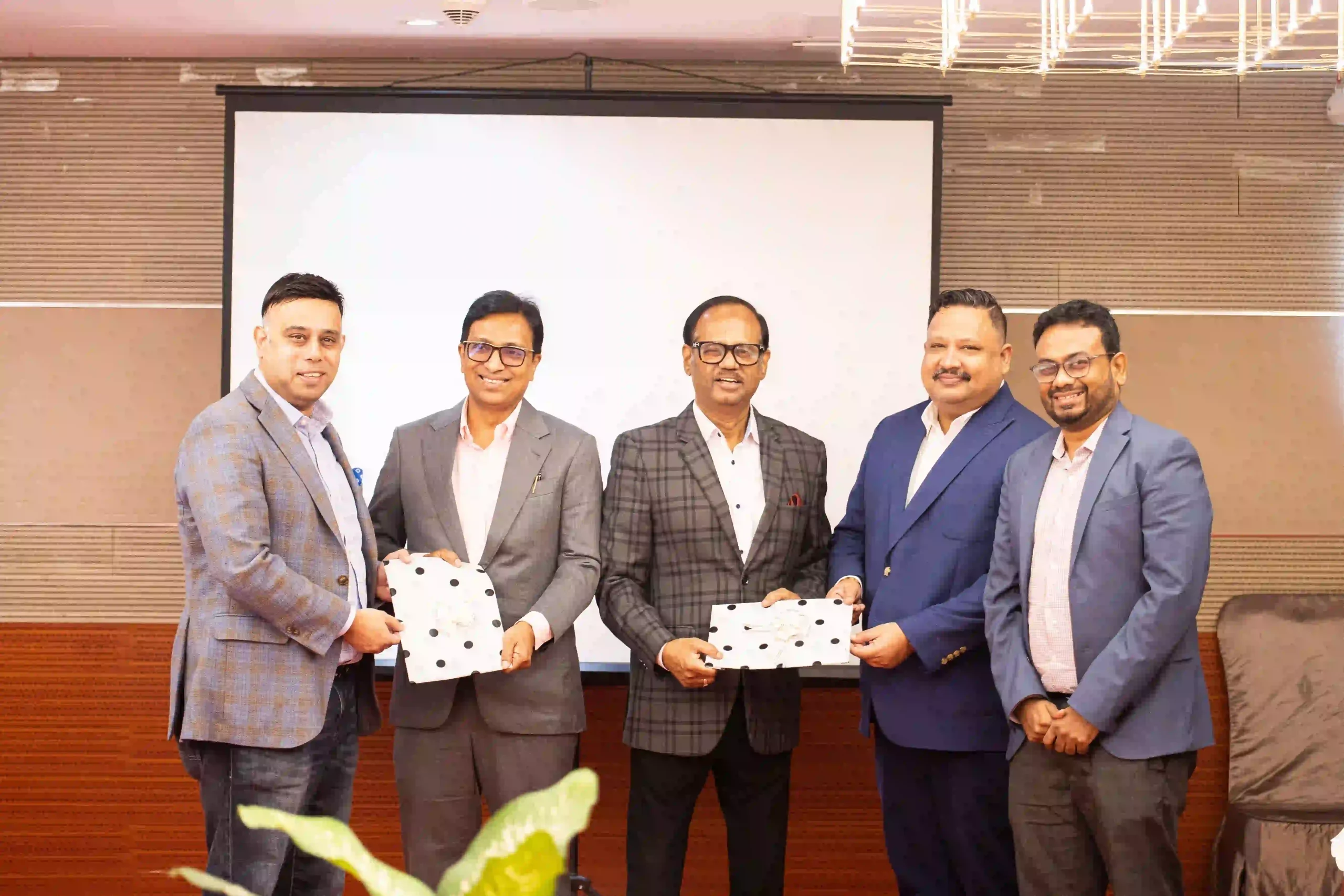
To offer essential policy directives to this crucial sector grappling with diverse challenges, LightCastle Partners in collaboration with Policy Exchange of Bangladesh, has proudly introduced Bunon 2030, a dedicated initiative to empower Bangladeshi women garment workers in the face of increasing automation, geopolitical turmoil, circularity, and decarbonization, among others.
With the Bunon 2030 initiative, our goal is to foster collaboration and knowledge sharing as we collectively navigate the path ahead for the apparel sector of Bangladesh. Through this effort, we encourage stakeholders to unite with us in driving systemic change in collaboration with apparel ecosystem stakeholders. Bunon 2030 is part of the collective impact initiative of H&M Foundation’s “Oporajita: Collective Impact on the Future of Work in Bangladesh” project, managed by The Asia Foundation.
On November 4, 2023, Bunon 2030 organized a Learning Dissemination and Roundtable Discussion. This event presented insights from an in-depth assessment of the apparel sector, revealing recommendations for ensuring the sector’s resilience in the future. At the event, the key research findings and the two Policy Briefs were presented to the audience comprising representatives from the government, development partners, and the private sector.
Mr. Md. Abdus Samad Al Azad, Joint Secretary (FTA-1) at the Ministry of Commerce, and Mr. Shahidullah Azim, Vice President of the Bangladesh Garment Manufacturers and Exporters Association (BGMEA) were present as special guests.
The comprehensive landscaping study titled “Threads of Progress: A Comprehensive Landscape Study of the Apparel Industry and the Future for Women Workers,” along with two Policy Briefs tailored for policymakers and industry leaders, sheds light on the pressing issues and policy imperatives within Bangladesh’s apparel sector.
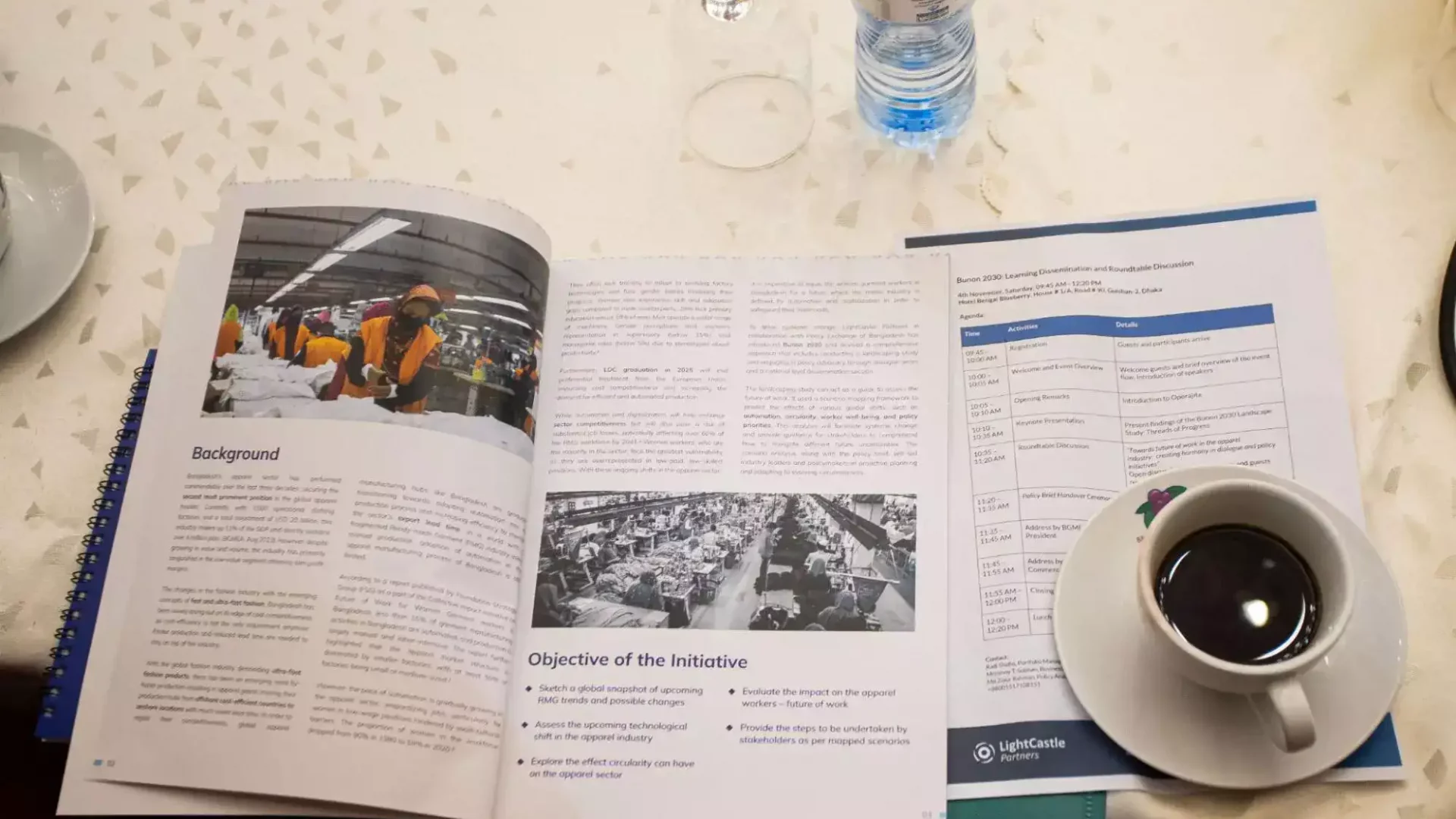
The launch event also featured a roundtable discussion with industry leaders, and Collective Impact partners of the Oporajita project, offering a meticulous exploration and constructive analysis of the report’s key findings and their implications for factory owners, industry leaders, development organizations, and policymakers. The discussion also delved into policy imperatives and strategies for driving systemic change under the uncertainties of the future. The scenario analysis, coupled with the policy brief, provides industry leaders and policymakers with the tools needed to proactively plan and adapt to evolving circumstances. The discussion was adeptly moderated by Dr. M. Masrur Reaz — Chairman and CEO of Policy Exchange Bangladesh — ensuring a thorough examination of the report’s ramifications.
According to the study findings, despite growing in value and volume, the industry has primarily languished in the low-value segment, attaining slim profit margins. With the changes in the fashion industry with the emerging concepts of fast and ultra-fast fashion, Bangladesh has been slowly losing out on its edge of cost competitiveness as cost-efficiency is not the only requirement anymore. Faster production and reduced lead time are needed to stay on top of the industry.
Mr. Md. Abdus Samad Al Azad, Joint Secretary (FTA-1) at the Ministry of Commerce also stated that in terms of product diversification, we face a shortfall, specializing in merely 9-10 apparel products. This limitation undermines our negotiation prowess and global competitiveness. The need for diversification was apparent a decade ago. He further stressed that “To strategically transition towards the use of Man-Made Fibers (MMF) and effectively harness Foreign Direct Investment (FDI), seeking collaboration with Japan and South Korea is pivotal. Employing a problem tree approach can help dissect and address the challenges and imperatives associated with this transition”.
Mr. Amer Salim, who serves as the Director at KnitAsia Limited and speaks on behalf of industry participants, reiterated Mr. Samad’s sentiments. He emphasized that the absence of a diversified product range is rooted in factors such as an incomplete list of HS Codes and the practice of importing more expensive raw materials for the production of higher-value items. Thus, conducting a thorough review of the HS Codes associated with the industry’s products and engaging with government authorities to advocate for trade facilitation improvements, including addressing HS Code concerns needs to be ensured. This will streamline import-export processes and facilitate a more robust and competitive business environment.
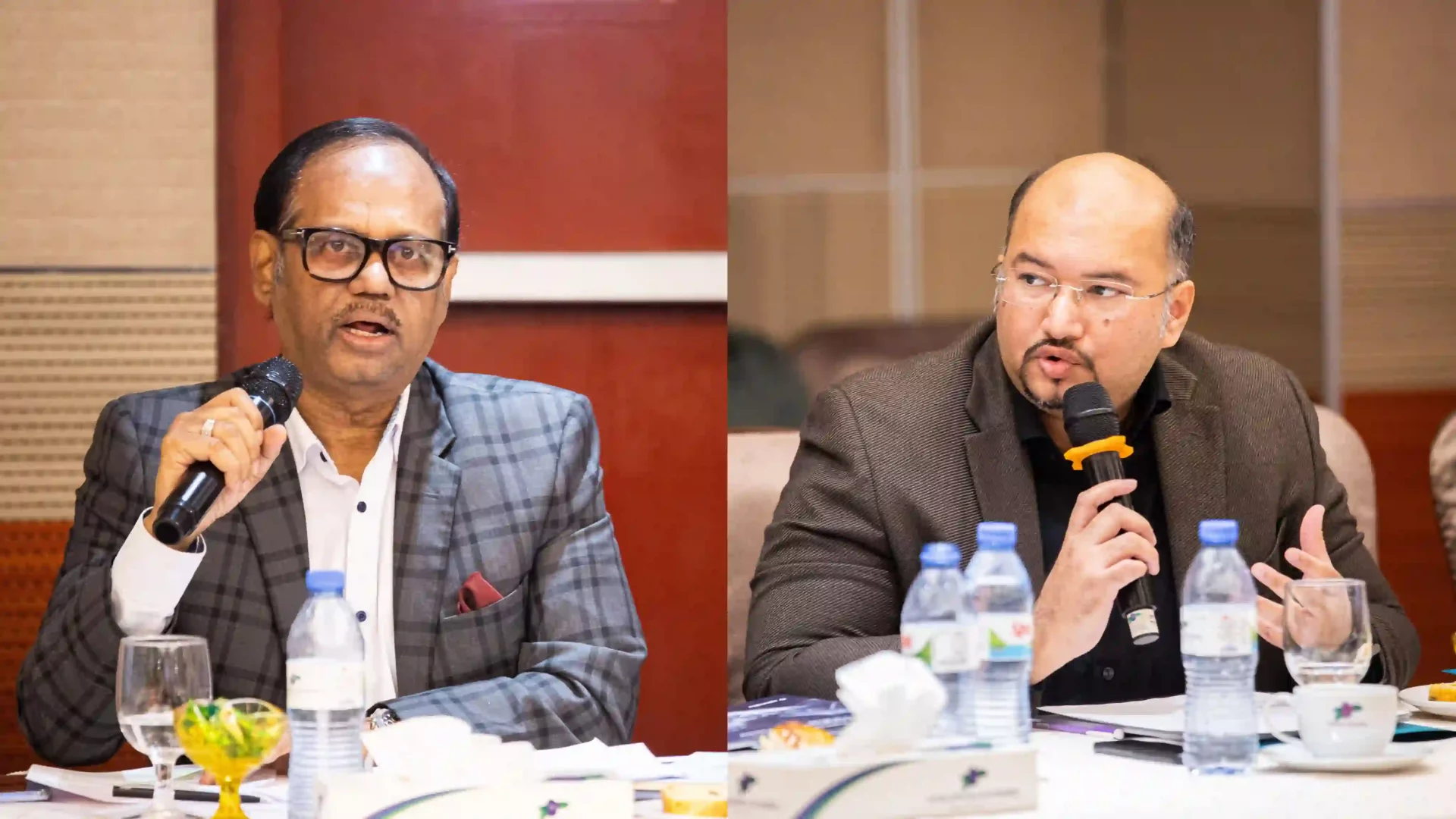
Recognizing the pivotal insights of the study, Shahidullah Azim, Vice President of the Bangladesh Garment Manufacturers and Exporters Association (BGMEA) emphasized the urgent need to address significant issues within the sector.
Emphasizing circularity as a paramount concern, he remarked, “Confronting daily obstacles in a challenging business environment, we witness a growing demand for cotton and energy. Recycling fibers and yarn to bolster our export revenue by 5-6 billion dollars becomes imperative.”
Furthermore, he underscored the necessity for advancements in MMF production and the development of expertise for value-added product manufacturing, drawing inspiration from the successful practices of Vietnam. Expressing optimism, he conveyed, “With collaborative efforts from our regulatory and private partners, we are poised to navigate successfully through the contemporary challenges confronting us.”
He further emphasized the need for our curriculum to focus on generating a higher number of graduates equipped with technical skills. Through innovation centers, factory owners are actively taking steps towards collaboration with the Asian University for Women, facilitating the education of over 300 women workers from factories to pursue education while receiving compensation.
Dr. Khondaker Abdullah-Al-Mamun, Founder of Health startup (CMED Health) & Professor at United International University (UIU), and an academician, emphasizes the importance of strategic collaborations: “We should segregate our recommendations and consult with respective regulatory bodies, like the Ministry of Industries, Ministry of Education, Ministry of Health & Family Welfare. These strategic collaborations are essential to ensure that our curriculum prioritizes technical proficiency, meeting the imperative for a skilled workforce ready for the challenges of tomorrow.”
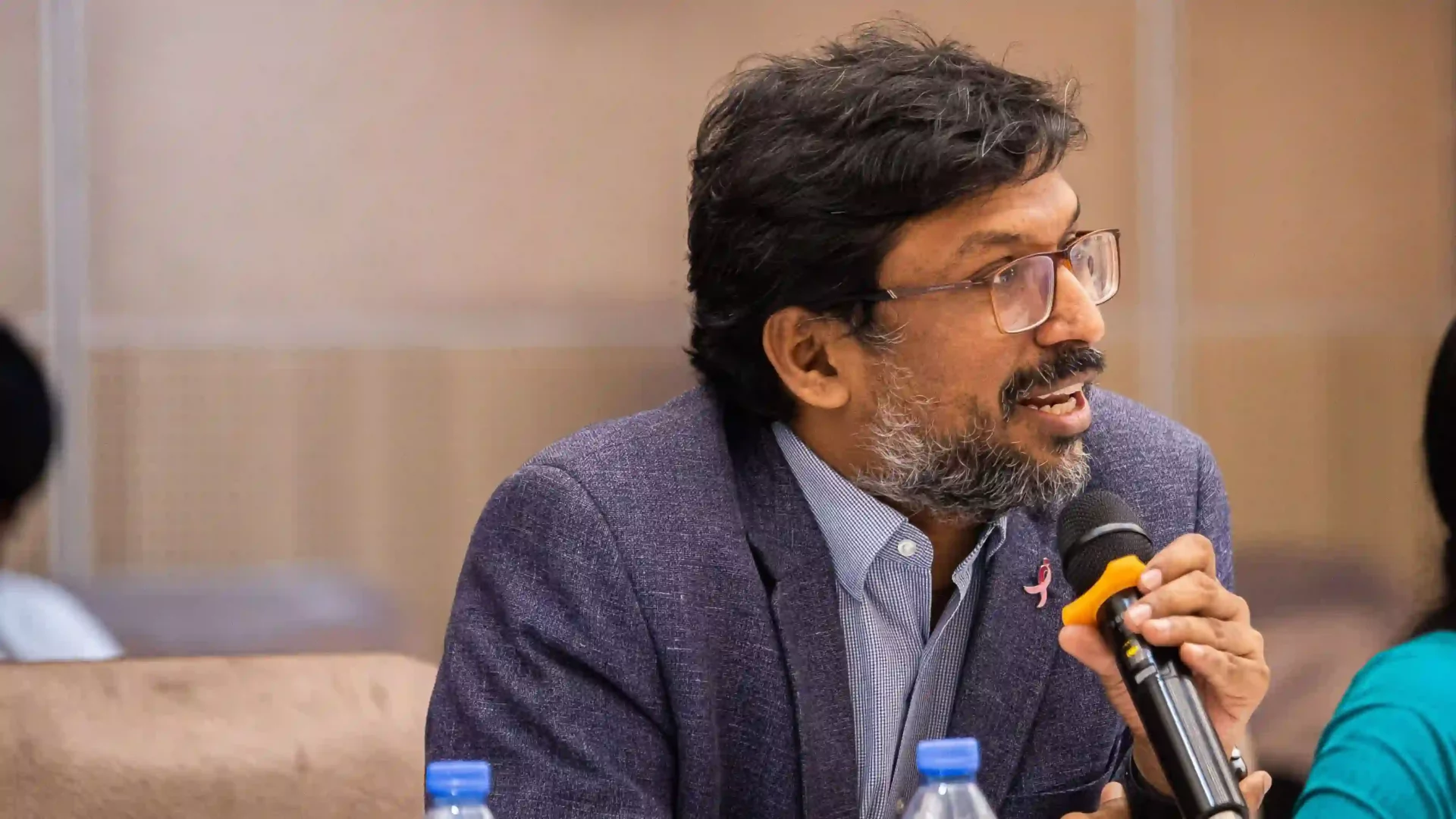
That being said, according to a report published by Foundation Strategy Group (FSG) as a part of the Collective Impact initiative on the Future of Work for Women Garment workers in Bangladesh, less than 15% of garment manufacturing activities in Bangladesh are automated, and production is largely manual and labor-intensive. [3]
The pace of automation is gradually growing in the apparel sector, stunting job growth, particularly for women in low-wage positions. The proportion of women in the workforce dropped from 90% in 1980 to 59% in 2020. They often lack training to adapt to evolving factory technologies and face gender biases hindering their progress. Women also experience skill and education gaps compared to their male counterparts; 29% lack primary education versus 18% of men.
Therefore, while automation and digitalization will help enhance sector competitiveness, they will also pose a risk of substantial job losses, potentially affecting over 60% of the RMG workforce by 2041. [4] Women workers, who are the majority in the sector, face the greatest vulnerability as they are overrepresented in low-paid, low-skilled positions. With these ongoing shifts in the apparel sector, it is imperative to equip the women garment workers in Bangladesh for a future where the textile industry is defined by automation and digitalization to safeguard their livelihoods.
Finally, it is of utmost importance to prioritize the welfare of those laboring day and night in this sector. Dr. Julia Ahmed, Independent Consultant (Sexual Reproductive Health & Rights; Mainstreaming Gender Equality & Health System Strengthening with a focus on Primary Health Care) shared that despite notable advancements, women garment workers continue to face challenges related to menstrual hygiene, and maternal and reproductive health. Existing policies in the social, commercial, and industrial sectors are commendable. However, it is imperative to consolidate directives from various ministries to guide the creation of thorough recommendations.
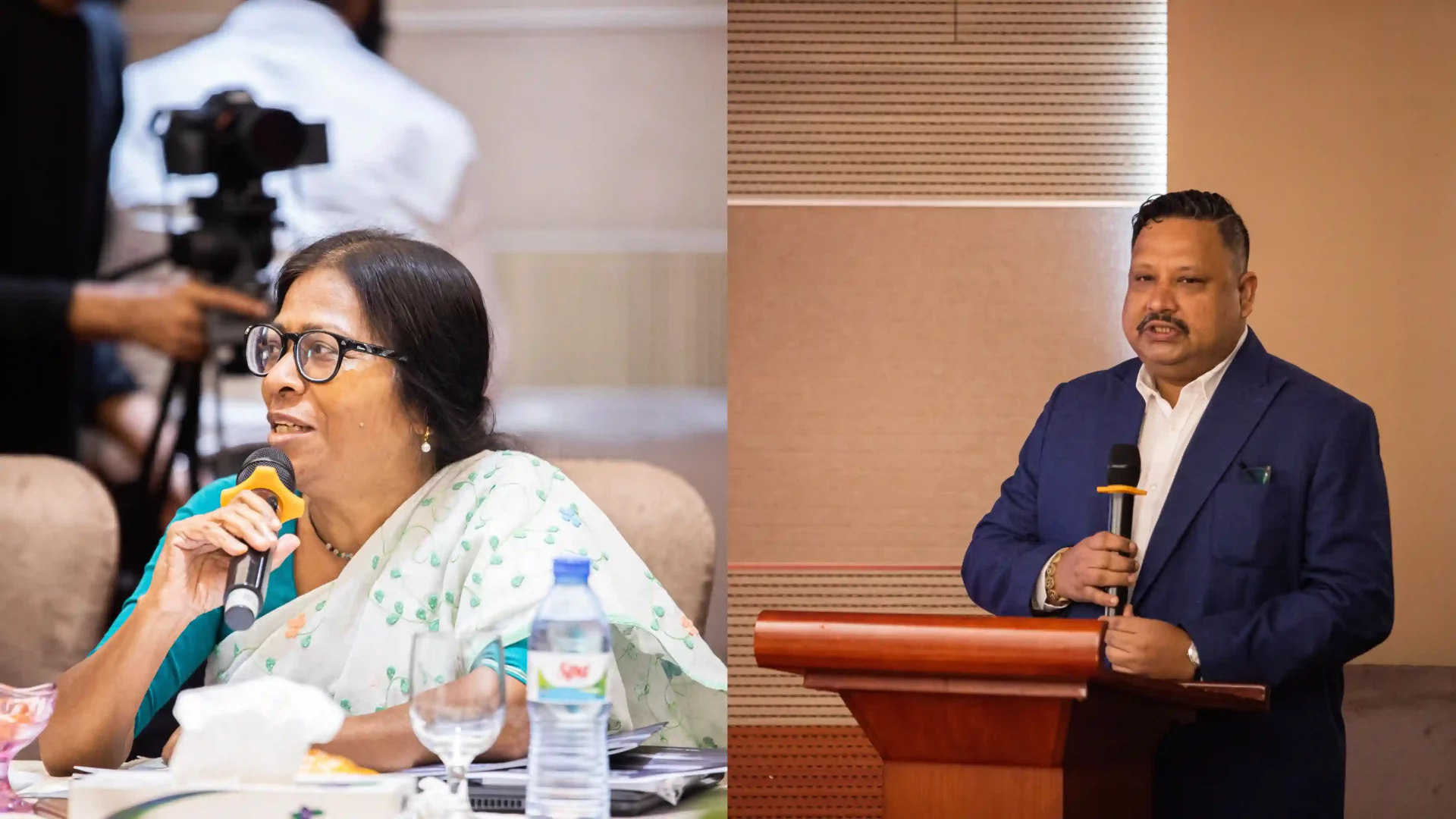
In addition, Kazi Faisal Bin Seraj, who serves as the Country Representative of The Asia Foundation, discussed the Oporajita project and emphasized the significance of the collective impact initiative. This initiative will promote collaborations to harness benefits such as enhanced innovation, shared resources, and increased efficiency, fostering a more dynamic and interconnected working environment within the apparel sector.
With the initiation of the Learning Dissemination Session, discussions have commenced to address critical issues in the RMG sector in Bangladesh. Our objective is to identify systemic solutions and policy imperatives. In the coming year, we plan to host four distinct dialogues, culminating in a nationwide dissemination event. These dialogues aim not only to share perspectives but also to foster impactful partnerships on themes such as circularity, decarbonization, industry competitiveness, worker wellbeing, automation, and policy imperatives.
The Bunon 2030 dialogue series is scheduled to kick off early next month, and we are excited to assess our progress thus far. We are eager to incorporate the valuable perspectives of various ecosystem stakeholders into our discussions, recognizing that these insights will significantly contribute to the success and efficacy of the dialogues. Our goal is to shape meaningful partnerships and sustainable strategies for the future.
We extend an open invitation to stakeholders, including yourself, to join us in this collaborative effort. Together, we can drive systemic change in conjunction with apparel ecosystem stakeholders, ensuring a sustainable and prosperous future for women garment workers in Bangladesh.
Samiha Anwar, a Business Consultant at LightCastle Partners, has prepared the write-up. For further clarification, contact here: [email protected]
Our experts can help you solve your unique challenges
Stay up-to-date with our Thought Leadership and Insights